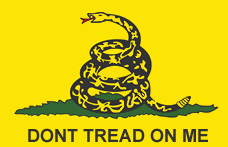





Independence
day
supplement

|
History of the Declaration of Independence From the National Archives |
|
Letter
from John Adams to Abigail Adams Regarding the 4th of July John Adams’ famous letter of July 3, 1776, in which he wrote to his wife Abigail what his thoughts were about celebrating the Fourth of July is found on various web sites but is usually incorrectly quoted. Following is the exact text from his letter with his original spellings: |
| Concord Bridge
Patriots I wish it were as simple as grabbing a musket and heading for the bridge |
| Our Favorite
Founding
Father When the colonial governor offered a blanket amnesty to colonials who would lay down their arms, he specifically refused to pardon only Samuel Adams and John Hancock. |
| My Name is Freedom and I am Very Much Alive I was never born, and I will never die. I am Freedom. |
| God, Guts, and Guns
Made America Great We cannot bring our fallen heroes back, but together we can get this country back on track. |
| Declaration of the
Causes and Necessity of Taking Up Arms July 6, 1775 |
| The
Price They Paid Have you ever wondered what happened to the 56 men who signed the Declaration of Independence? |
| What We Should
Celebrate This Independence Day The role of government is limited to protecting those rights, not making up new ones, such as Franklin Roosevelt's "freedom from fear." |
| Our
National Anthem The Star Spangled Banner |
|
History
and Origins of the Gadsden Flag “'Tis curious and amazing to observe how distinct and independent of each other the rattles of this animal are, and yet how firmly they are united together, so as never to be separated but by breaking them to pieces. One of those rattles singly, is incapable of producing sound, but the ringing of thirteen together, is sufficient to alarm the boldest man living.”  |
~~~::~~~
Timeline
of
events leading to the
Revolutionary War
and beyond
~~~::~~~

The
Founder's Library
Everything from the
Declaration of Rights and Grievances
to Jefferson's rough draft of the Declaration of Independence.
~~~::~~~
A
User's
Guide to the
Declaration of Independence
~~~::~~~
Our Nation's Symbol
| I am The Flag |
| Our Flag It's evolution, meaning, rules for displaying. Also flag trivia and FAQs. More |
| How did
our flag become known as "Old Glory"? |
~~~::~~~
|
Chronology of major events in the
evolution of ~~~::~~~ |
The Colonial Period: 1497-1763
|
The Revolutionary War Era: 1763-1789
|
The Early Republic: 1789-1823
|
The Civil War Era: 1820-1865
|
2 July 1999
updated:
May 2000
2 July 2001
4 July 2003
4 July 2005
2 July 2006
2 July 2007
2 July 2010
2 July 2016
3 July 2021
13 may 2023